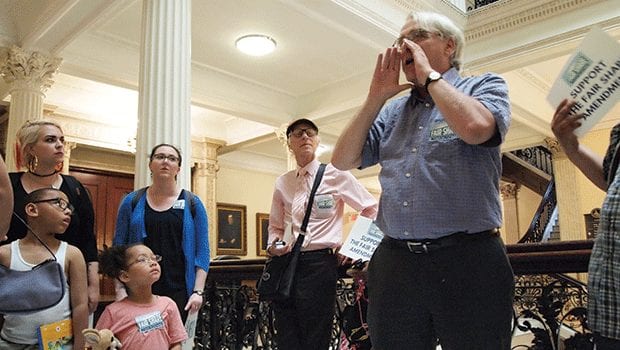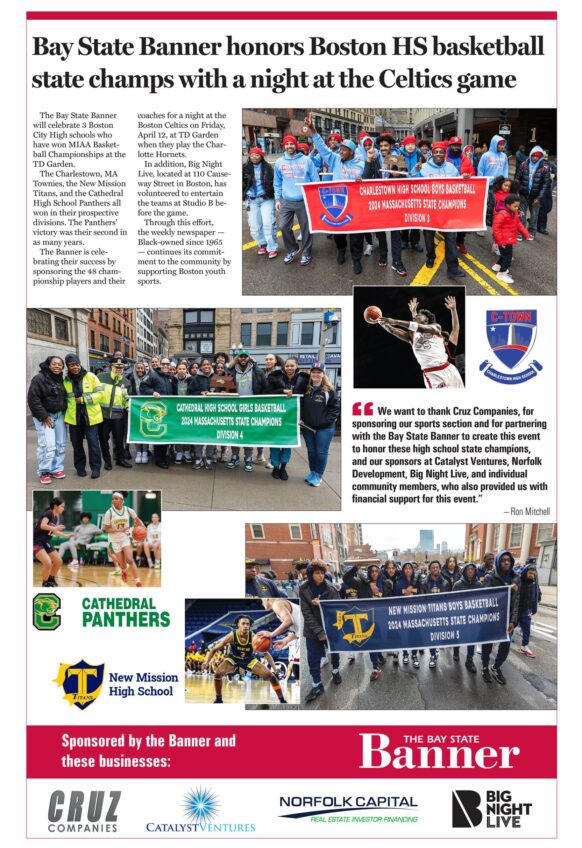Millionaires’ tax clears Legislature
Barring legal challenges, Fair Share Amendment to hit ballot Nov. 2018

The Fair Share Amendment or so-called “millionaire’s tax” is on the path to go before voters in a November 2018 statewide ballot. During last week’s constitutional convention, the amendment garnered the necessary approval to appear on the ballot; 134 state legislators were in favor and 55 against, which exceeded the 25 percent favorable votes required by an additional 59 percent. The proposed amendment would introduce a higher income tax rate on the state’s top earners, with the revenue directed to public infrastructure and public education uses only.
If enacted, the Fair Share Amendment imposes a 4 percent surtax on individuals’ earnings over their first $1 million. That $1 million threshold would be adjusted to cost-of-living increases so it continues only to affect the wealthiest residents. The added revenue would then go toward repair and maintenance of roads, bridges, and public transit and “quality public education, affordable public colleges and universities.” Estimates peg new revenue at about $1.9 billion annually.
Lewis Finfer is the director of Massachusetts Communities Action Network and co-chair of Raise Up Massachusetts, the coalition behind the Fair Share Amendment. He told the Banner the amendment is the “chance of a generation” to combat years of budget crises and to fund projects and initiatives that will bring transformative opportunities to residents. For instance, the revenue could support efforts to supply enough early education seats to meet demand, rein in college tuition costs and improve English as a Second Language offerings.
Supporters of the amendment say it puts a small additional tax on those who can afford it most and leverages the funds raised to benefit the common good and reduce glaring equity gaps. Opponents say that while the identified spending areas are valuable, they do not believe the tax is the proper mechanism, nor that it will achieve the expected revenue.
Currently, Massachusetts’ top earners pay lower shares of their income in state and local sales, property, income and excise taxes than lower-earning residents do, according to the Institute on Taxation and Economics. In 2015, those who made more than $860,000 annually (the top 1 percent of earners) paid 4.9 percent of their income in such taxes, while those making less than $22,000 annually (the bottom 20 percent of earners) paid 10.4 percent of their income. With the millionaire’s tax added in, top earners would pay about 8 percent of their income in taxes, still a smaller share than some lower-earners do.
Will millionaires leave?
Opponents, such as the Massachusetts Taxpayer Foundation, call the amendment misguided, and say that the new tax will be an unpredictable revenue source that also could encourage wealthy residents to move out of state. During the recent constitutional convention, Rep. Randy Hunt said Massachusetts is relatively small and so closely abutted by other states that it will facilitate the choice to relocate.
Advocates such as Sen. Jamie Eldridge disagree, saying that companies are drawn to Massachusetts for the very things the Fair Share Act invests in — an educated workforce with easy access to their places of work — and not to the tax climate. Max Page, a board member of the Massachusetts Teachers Association, which turned out for the convention, said given that individuals can deduct state income tax when calculating their federal taxable income, the surtax millionaires pay will in effect be smaller than 4 percent.
Amendment supporters also argue that other factors would prevent wealthy individuals from relocating, such as a desire to stay near their social circles and nearby family, reluctance to uproot school-aged children and the potential difficulty of maintaining their jobs if they move.
Will it work?
The Massachusetts Taxpayers Foundation argues that new revenues will be unpredictable as the tax focuses on a millionaires, a relatively small population. The estimated $1.9 billion would come from about 19,600 people, or 0.5 percent of the state population. Of that pool, the 900 state residents who make more than $10 million a year are expected to produce $1 billion of the anticipate revenue. If some of them move out of state, it could be an oversized blow to funding.
The MTF and Sen. Bruce Tarr also argue that many of these hyper-affluent individuals draw earnings from capital gains, which fluctuate greatly based on economic upswings and downturns. This would make it important to hold some of the Fair Share Act funds in reserve for use during years with sparser revenue collection.
Meanwhile, supporters say that the tax is meant to enhance, not replace, the transportation and education budgets. In that light, any additional revenue dedicated to worthy goals is worthwhile, even if the exact amount fluctuates.
Advocates see embedding this measure in the state constitution as a way to ensure the revenue goes to the desired causes. Meanwhile, some including Rep. Paul Frost, argue that the legislature cannot be trusted not to raid the fund and designate the Fair Share money elsewhere when faced with frequently-occurring deficits in the general budget. Some opponents say there is a risk that even if legislators obey the amendment and direct funding as required, they will then cut general funding that otherwise would have gone into education and transit, thus keeping funding level instead of increasing it.
Sen. Brad Jones echoed a MTF fear that should the legislators decide the amendment is a mistake or needs adjustment, it will be difficult to alter it. Legislators would have to have their changes approved in two subsequent constitutional conventions.
Legal dispute
Opponents in the business sector seek to stop the measure from ever hitting the ballot by challenging it in a lawsuit. While the exact legal line of attack has not materialized, many expect opponents will charge that it is not legal to have a constitutional amendment dictate specifically how money can be used. Despite Rep. Frost’s fear that the act’s language does not prevent revenue redirection, these opponents say virtually the opposite: that the amendment is so binding that it usurps the power of the legislature to determine spending.
Advocates of the amendment, however, say that the language is appropriately broad: The act dictates to the legislature the general aims for the revenue, but allows them freedom to determine which specific initiatives, line items and projects to fund in order to advance affordable education, transportation maintenance and other outlined goals. Furthermore, they say, there is precedent in the state’s gas tax, whose revenue is directed toward transportation. They also note that the language of the Fair Share Act was approved by the state attorney general.
Raise Up Massachusetts’s assembled legal team includes Peter Enrich, a law professor at Northeastern University and a founder of the ballot committee, and pro bono support from Kate Cook of Sugarman Rogers.






